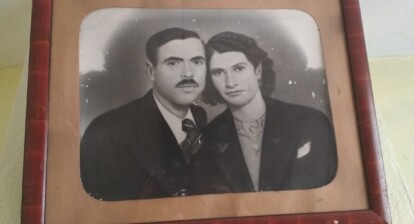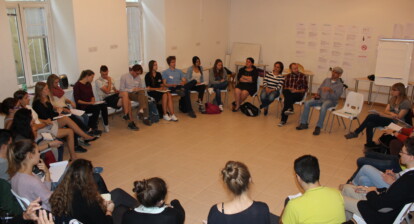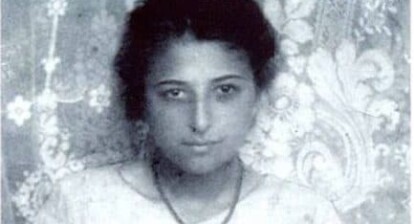In September 2020, Liliana from Bulgaria departed for a Erasmus Solidarity Corps (ESC) project in Ghent, Belgium. Among the discoveries made in the small Benelux country, she faced a new level of complexity regarding national identity and a confusing border situation. Is there a thing like Belgian identity? What is Belgium – heaven for linguaphiles or a linguistic nightmare for the locals? Here are Liliana’s impressions on the multiple personalities of Belgium after exploring the country known as the headquarter of the European Union.
A Portion of French Fries, Please!

Belgian fries, cooked twice and served with Andalouse sauce (Photo: private)
A few months after I had gotten back from my Erasmus semester in Parma, which allowed me to enter the home of every barista, the time for a new challenge had come. This time, the aim was to discover an ESC project which would allow me to make a difference. While Barbare from Georgia decided to work with Syrian refugees in Gaziantep, Turkey, I ended up assisting the Branding, Marketing and Communications director of a well-known charitable organisation’s European branch. This branch is located in Ghent, Belgium.
That’s how in September 2020, the formerly prominent city-state became my temporary home. The Benelux country welcomed me eager to find out my beer preference and how well I would manage to bike on wet tram tracks while snacking chocolate, waffles and French fries. All of them are mouth-watering products Belgium is well-known for.
Historically speaking, the French, the Dutch, and the British are among the nations that have laid claim to potato fries. The locals must find the consumption of French fries to be something of a necessity of life, I thought at first while strolling the streets of Ghent. It is difficult to miss the frites stall (frietkot) located on every corner. The reason lies in the fact that, contrary to a popular belief, French fries’ origin can be traced back to Belgium – and not to France. The confusion comes partially from the fact that in old English, “French” meant “cutting lengthwise,” I was explained shortly after my arrival while snacking fries at one of the frites stalls.
Political Confusion
French fries aside, locals enjoy talking about politics. While I was open to discussing a variety of topics with the locals, they seemed to prefer making a turn to the political environment in the different parts of the country. I was quickly made familiar with the fact that Belgium had spent nearly two years without a government, or 652 days to be precise. The country broke its own previous record for a post-election period without a government, which stood at 541 days. Is Belgium so keen on setting records?, I asked myself.
According to my impression, the countries which receive news coverage are either the neighboring states, or the ones of particular economic significance to the country in question. Belgium doesn’t fall into any of these categories from my home country Bulgaria’s point of view. That’s why, from my Eastern European perspective and based on what local sources decide to report, this information about its political instability came as a surprise. I had never perceived Belgium as an area of turmoil or political instability. Quite the opposite, it always seemed impressively stable to me. I suppose that if a country manages to go through such a period, this speaks highly in favour of the personnel working in its institutions.
Eventually, after the problematic elections in 2019, twelve parties made it into parliament. Each political view is represented twice – two Christian Democratic parties, two Social Democratic parties, two Green parties, two Liberal parties and quite a few regional or nationalist parties. The reason? They can’t speak to each other.
I Said “Yes” – a Linguaphiles’ Heaven

Grabbing a kayak paddle – an activity enjoyed both by locals and tourists in Ghent (Photo: private)
When I said “yes” to the ESC adventure in Ghent, I enrolled in a course to foster my faster integration into Belgian society. I remember a few friends exclaiming how romantic and beautiful French language is, and pointing out how lucky I was to be immersed in such an environment. Everyone around me, including myself, had forgotten that Ghent is not located in the French-speaking part of the country. Frankly, when it came to moving to a new country, I had other worries, such as the always-grumpy weather everyone was forewarning me about and making friends in times of a complete lockdown.
Once upon a time, French used to be the sole official language of Belgium. Until 1898, when Dutch became the other official language. It did not become the sole official language of Flanders (the Dutch-speaking area in the country’s north) until 1921. Since the 1960s, separate regions have been created based on the country’s linguistic division.
Did Someone Say German?

Map of Belgium showing the provinces (black lines) and regions (colours). Yellow = Flanders, Red = Wallonia, Blue = German-speaking part, Orange = Brussels Capital Region (Photo: Stevenfruitsmaak, Creative Commons Attribution-Share Alike 3.0)
Today, the country has three regions – the Flemish Region, the Brussels-Capital Region and the Walloon Region (from north to south), and each of them has a linguistic particularity. The government’s long refusal to acknowledge Dutch as an official language led to hostilities between Flanders and the French-speaking bourgeoisie who held both political and economic power, which hostilities continue to this day. Another reason for them is that the Dutch-speaking part is considered more economically stable than the French one. Such a conclusion can be made from the lower unemployment rates and higher economic productivity of Flanders. That’s why Flanders claims that it is being over-taxated and given insufficient autonomy, and the concentration of social services in Wallonia leads to the claim for the “stream of money” from Flanders to Wallonia.
Being a trilingual country (yes, we tend to forget about German which is also an official language according to the constitution), tensions between French and Dutch-speaking areas are not fully resolved. To complicate things even further, a fourth language — Luxembourgish — can also be heard in the province (not country!) called Luxembourg.
Mind Your Language!
Not once did I witness anything close to a language barrier for me, as I never stumbled upon a person who did not speak English. I remember entering an irresistible artisan bakery in Ghent on one of my first days in Belgium. I was prepared to start pointing fingers at the pastry I wanted, but a 80-year-old lady behind the stand interrupted my gesticulation and started to explain what the sweets were made of in fluent English.
My impression, shared by many, is that speaking in English both in Flanders and in Wallonia was better received than speaking the “wrong” language for the respective region. Some friends told me that the locals in Brussels would either not speak Dutch at all, pretend to not understand it, or understand it but make a grumpy face when being spoken to in any language but French.
Discrimination on the grounds of language is common and rooted in the hostility between French and Dutch-speaking people, which from what I noticed is usually not based on personal experience and has to do with prejudice and bias. The small German-speaking Community of Belgium in the eastern border region is in fact more an observer than a player in the difficult negotiations between Flanders and Wallonia. The issue does not stop with the difference in the pronunciation of words, which belong to the same language.
“United in Diversity” – Truth or Hoax?
The concept that locals do not feel entirely comfortable speaking the language they were brought up speaking in their home country, just 20-30 km outside of their hometown, was and still is odd to me. How must it feel for the German-speaking minority to have German as an official language in the constitution, but have announcements in the train stations written in French and Dutch only, I asked myself. How must it feel not being able to understand someone who was raised in the same country although you both speak the official language? And how must it feel to not apply for a job because you do not meet the proficiency language requirements…in your own country? It was a paradox – „the capital of the European Union“, whose motto is “United in diversity”, open to many nationalities and ethnicities, being unhospitable towards its own people.
Most, but not all of the Dutch speakers are bi- or tri- lingual, without this meaning that they are fluent. In the meantime, many of the Walloons are monolingual or have basic to intermediate level of Dutch. But fluency in all three languages is a time-consuming task which hardly anyone can fulfill.
Making Big Use of Small Territory
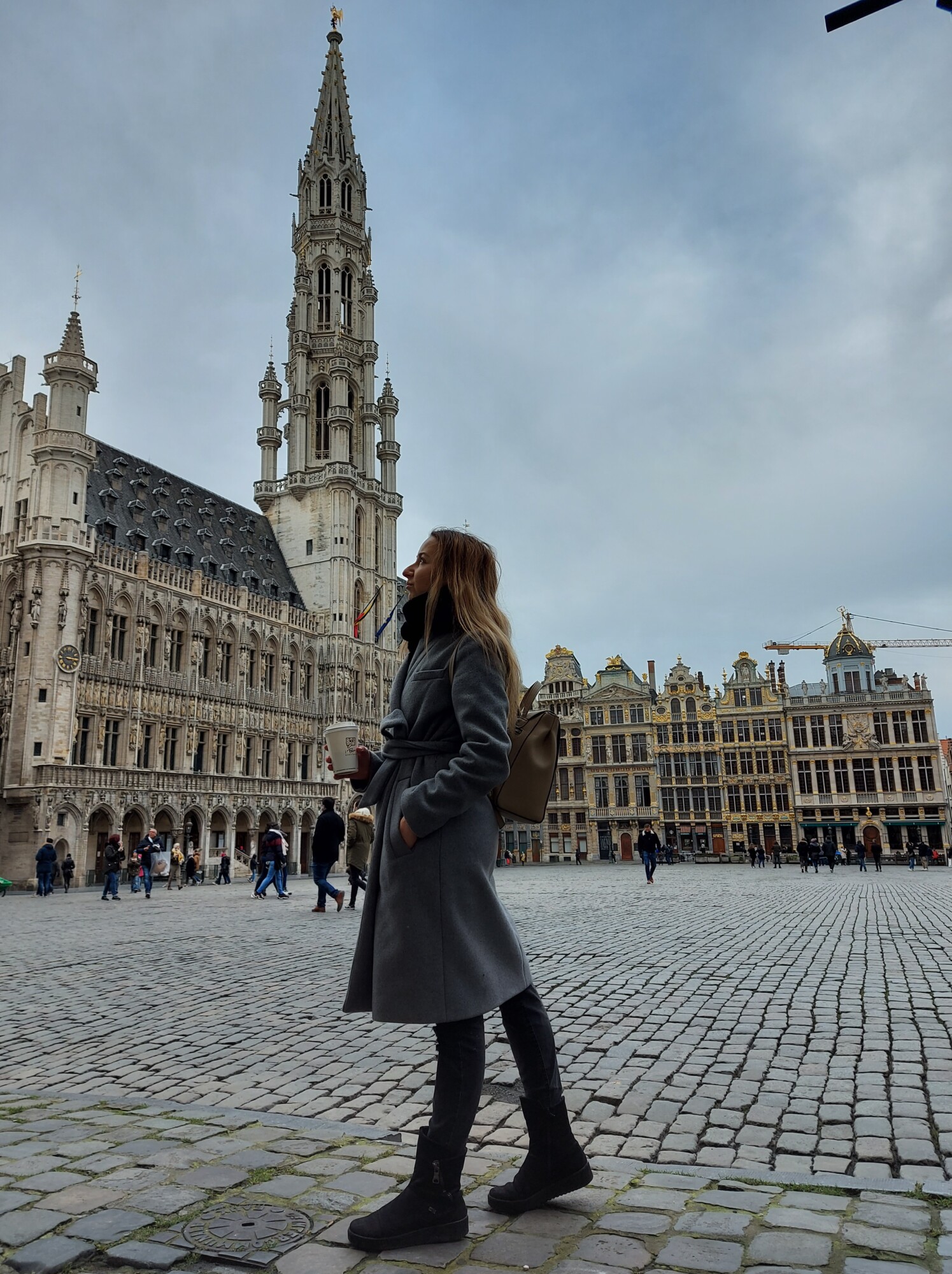
The Grand Place or “Grote Markt” of Brussels. (Photo: private)
The complex linguistic situation has an advantage that not many countries can offer. Do you want to practice your language skills? I suggest to kick off your day in Ghent and chat with the locals in Flemish, buy some non-French French fries in French in Brussels, and then go to Eupen to order dinner in German. Like that, in the course of a day, you’ve made use of all three constitutional languages of Belgium.
The fact that you have the option to do the aforementioned, also has to do with Belgium’s size (30,689 km2). A friend of mine would gladfully commute from Brussels to Ghent on a daily basis, because driving from the outskirts of Brussels to downtown Brussels would take her more time than the 37-minute train ride from Brussels to Ghent.
The disadvantage: After 2-3 months of exploring places of interest at the weekends, the list of places to visit in the country is exhausted. Long live Schengen, some would claim – Belgium is in the heart of Europe, conveniently located for travel freaks. Sure it is, but being a member of the Schengen area didn’t help in my situation when neighbouring countries closed their borders for Belgian residents due to Covid-related restrictions.
One Town, Two Countries
The situation was particularly complicated for the residents of Baarle-Hertog-Nassau, often referred to as the world’s most complex border situation. A simple check of the European map proves that the
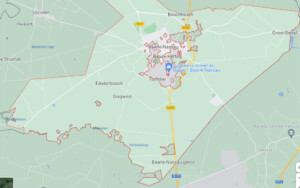
Baarle-Hertog-Nassau (Photo: Google Maps screenshot)
geographical uniqueness of the town is not visible to the naked eye. It’s only when you zoom in that the situation becomes clearer. The town is geographically confusing as it is located in the Netherlands, but there are 22 Belgian enclaves completely surrounded by Dutch territory. During the pandemic, the day came when Belgium opted for complete lockdown while in the Netherlands they chose the so-called ‘intelligent’ lockdown and even cafes were operating. That meant that people on some streets were forced to stay home, while the residents of the neighboring street were moving freely. Pieces of Belgium were cut off from their own country like islands in a foreign sea. One can only imagine the nightmare locals would have been forced to experience if either Belgium, or Netherlands was not part of Schengen!
Does a Belgian Identity Really Exist?
Identities at the time Belgium was founded were based on emotional attachments to religion, language and local provinces. The foundation of the country has more to do with great power politics and is considered an artificial construct more than a result of the aspiration of its people for self-determination. This doesn’t automatically doom the country to a partition. Switzerland is a European example of having successfully forged a united national identity out of multiple linguistic communities. However, in Belgium’s case, the combination of the growing cultural, political, and economic distance between French- and Dutch-speaking Belgians has had a grave effect on the viability of Belgian national identity.
“I’m Flemish, Not Belgian.”
Identity is a social construct and thus quite difficult to define. Having a sense of multiple loyalties not only to one nation-state and its institutions, but to a region or linguistic group, even to a supranational organisation (like the European Union) is common. On the one hand, European integration seems to affect most of the member states in terms of increasing the locals’ feeling of a European identity at the expense of their national one. On the other hand,my observation is that in Belgium the regional (sub)identity’s strength comes first, is followed by the European one, and the last place is taken by the national identity. Illustrative: Willy De Waele, who was a mayor of the Flemish town of Lennik between 2001 and 2011, even said “I’m Flemish, not Belgian.”
Nevertheless, what seems to be a unifying element for all holders of various regional identities is their love for…French (Belgian) fries’ unmistakable aroma. Politically and linguistically fascinating, having a vocational center in Leuven and trains as would-be frites sellers – that’s what comes to my mind when someone mentions Belgium two years after the start of my ESC adventure in Ghent.
My Top 3 Insights
1) What Cultural Habits Have I Stumbled Across?

Citadelpark, Ghent (Photo: private)
People in Ghent love spending time in nature. Enjoying an open-air picnic is a “cultural habit” I gladfully picked up. The town is rich in parks and greenery areas. If you happen to visit, dust off your picnic baskets and head to the natural reserve Bourgoyen-Ossemeersen or the marina of Sint-Martens-Latem.
2) What to Keep in Mind?
Everyone (!) owns a bike in Ghent. Bikes are allowed in both directions on almost any street and drivers are used to collaborating with cyclists on the roads. However, the way Ghent is, it is easy to get your bike tires stuck in the tracks or slipped when crossing tracks, especially when the conditions are wet. I was among the unlucky individuals who contributed to the statistics of the emergency department about the yearly number of bicycle accidents.
3) What Surprised me The Most in Ghent?
Ghent is modest in size compared to Brussels and Antwerp. Although the historic capital of Flanders has slightly more than 260,000 inhabitants, from what I saw, it offers a greater variety of activities compared to even bigger cities in my home country Bulgaria. The streets are incredibly lively at night. The town has a double personality – a cosy historical town, which dates back to the year 630 A.D., which carries a young and vibrant energy. The music and theatre festival Gentse Feesten is one of the many proofs.



